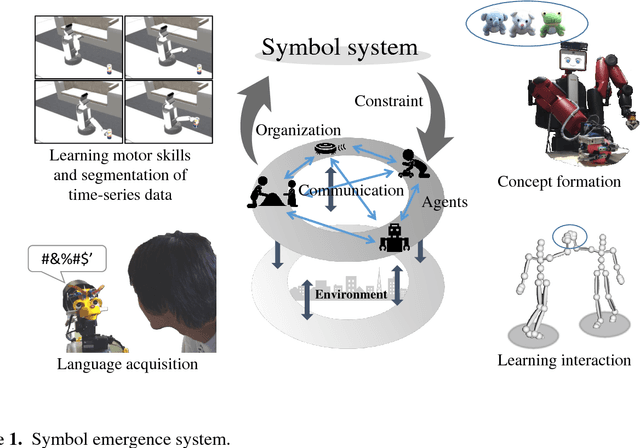SERKET: An Architecture for Connecting Stochastic Models to Realize a Large-Scale Cognitive Model
Paper and Code
Dec 06, 2017



To realize human-like robot intelligence, a large-scale cognitive architecture is required for robots to understand the environment through a variety of sensors with which they are equipped. In this paper, we propose a novel framework named Serket that enables the construction of a large-scale generative model and its inference easily by connecting sub-modules to allow the robots to acquire various capabilities through interaction with their environments and others. We consider that large-scale cognitive models can be constructed by connecting smaller fundamental models hierarchically while maintaining their programmatic independence. Moreover, connected modules are dependent on each other, and parameters are required to be optimized as a whole. Conventionally, the equations for parameter estimation have to be derived and implemented depending on the models. However, it becomes harder to derive and implement those of a larger scale model. To solve these problems, in this paper, we propose a method for parameter estimation by communicating the minimal parameters between various modules while maintaining their programmatic independence. Therefore, Serket makes it easy to construct large-scale models and estimate their parameters via the connection of modules. Experimental results demonstrated that the model can be constructed by connecting modules, the parameters can be optimized as a whole, and they are comparable with the original models that we have proposed.
 Add to Chrome
Add to Chrome Add to Firefox
Add to Firefox Add to Edge
Add to Edge